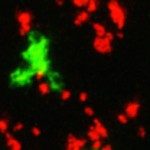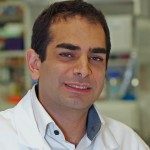Link to Pubmed [PMID] – 37595589
Link to DOI – 10.1016/j.xcrm.2023.101161
Cell Rep Med 2023 Aug; (): 101161
Anti-CD19 chimeric antigen receptor (CAR) T cell therapy represents a breakthrough for the treatment of B cell malignancies. Yet, it can lead to severe adverse events, including cytokine release syndrome (CRS), which may require urgent clinical management. Whether interpatient variability in CAR T cell subsets contributes to CRS is unclear. Here, we show that CD4+ CAR T cells are the main drivers of CRS. Using an immunocompetent model of anti-CD19 CAR T cell therapy, we report that CD4+, but not CD8+, CAR T cells elicit physiological CRS-like manifestations associated with the release of inflammatory cytokines. In CAR T cell-treated patients, CRS occurrence and severity are significantly associated with high absolute values of CD4+ CAR T cells in the blood. CRS in mice occurs independently of CAR T cell-derived interferon γ (IFN-γ) but requires elevated tumor burden. Thus, adjusting the CD4:CD8 CAR T cell ratio to patient tumor load may help mitigate CAR T cell-associated toxicities.






